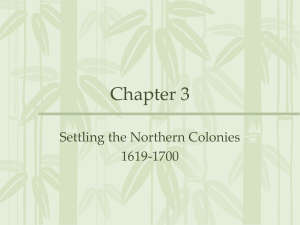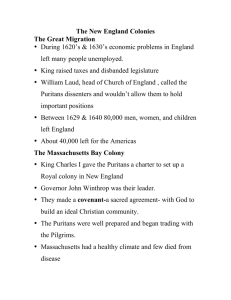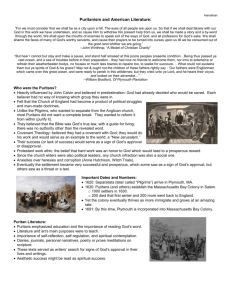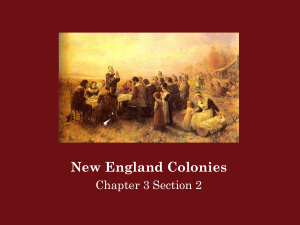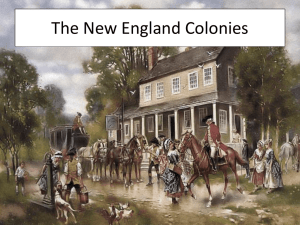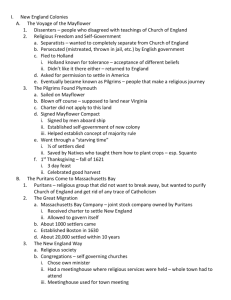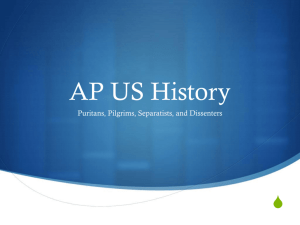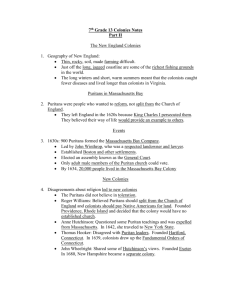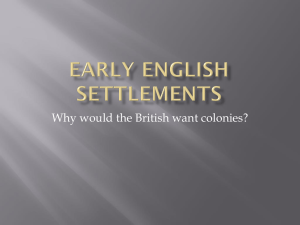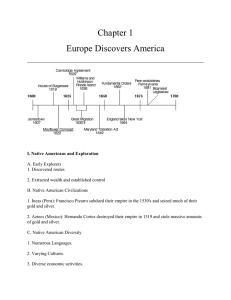notes - Mr.VanTassel
advertisement
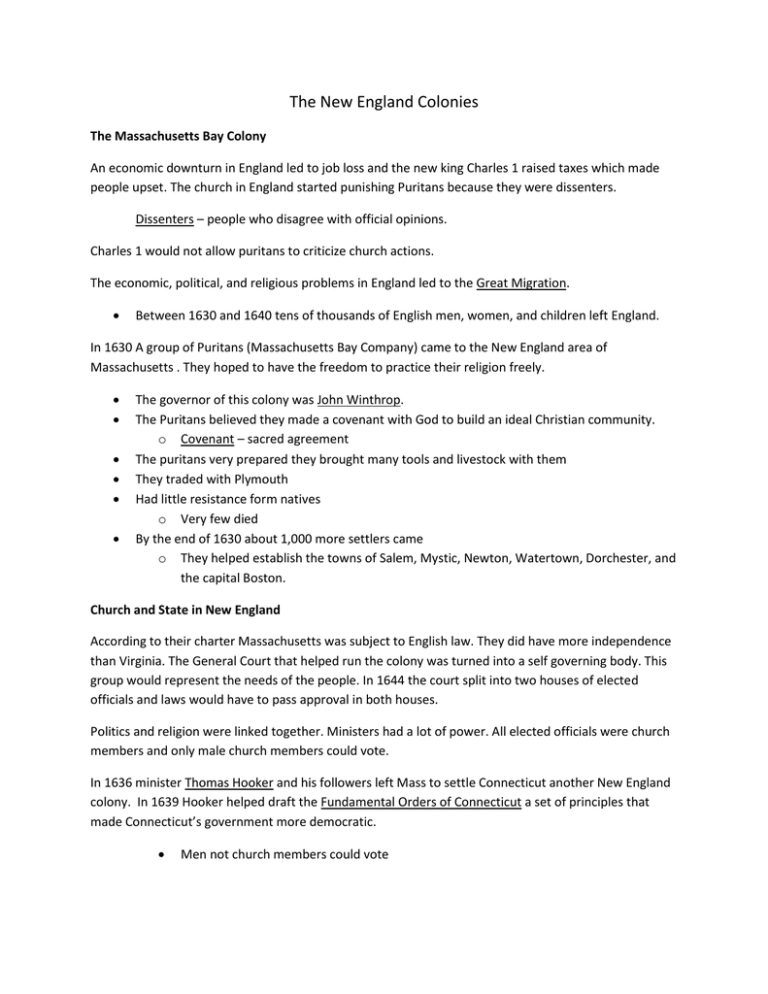
The New England Colonies The Massachusetts Bay Colony An economic downturn in England led to job loss and the new king Charles 1 raised taxes which made people upset. The church in England started punishing Puritans because they were dissenters. Dissenters – people who disagree with official opinions. Charles 1 would not allow puritans to criticize church actions. The economic, political, and religious problems in England led to the Great Migration. Between 1630 and 1640 tens of thousands of English men, women, and children left England. In 1630 A group of Puritans (Massachusetts Bay Company) came to the New England area of Massachusetts . They hoped to have the freedom to practice their religion freely. The governor of this colony was John Winthrop. The Puritans believed they made a covenant with God to build an ideal Christian community. o Covenant – sacred agreement The puritans very prepared they brought many tools and livestock with them They traded with Plymouth Had little resistance form natives o Very few died By the end of 1630 about 1,000 more settlers came o They helped establish the towns of Salem, Mystic, Newton, Watertown, Dorchester, and the capital Boston. Church and State in New England According to their charter Massachusetts was subject to English law. They did have more independence than Virginia. The General Court that helped run the colony was turned into a self governing body. This group would represent the needs of the people. In 1644 the court split into two houses of elected officials and laws would have to pass approval in both houses. Politics and religion were linked together. Ministers had a lot of power. All elected officials were church members and only male church members could vote. In 1636 minister Thomas Hooker and his followers left Mass to settle Connecticut another New England colony. In 1639 Hooker helped draft the Fundamental Orders of Connecticut a set of principles that made Connecticut’s government more democratic. Men not church members could vote Daily Life and Customs Life for New England colonist centered on religion and family duties. Most were skilled workers or farmers (middle class) Farmers grew for themselves (not Tabaco) Few indentured servants or slaves Parents picked their mate Wife – obey husband, have children, and run household Husband – treat wives with the greatest love, gentleness, kindness, and tenderness. Education was important to them because they wanted their kids to read the bible. Mass passed some of the first laws requiring parents to provide instruction for their child. 1636 john Harvard starts Harvard College - taught ministry Dissent in Massachusetts Not all Puritans shared the same views. Minister Roger Williams did not agree with the leadership of mass. He called his church to separate from New England churches and criticized the courts for taking natives land without paying them. Puritan leaders worried what Williams ideas would do and made him leave forever. Williams took his supporters and started providence which became Rhode Island. In Boston Anne Hutchins angered Puritan church leaders by publicly discussing religious ideas that were thought to be radical. Believed God speaks directly to people The Puritans leaders were alarmed Hutchins put on trial for ideas o They forced her out of the colony o Her followers and her helped found the colony of Portsmouth (Rhode Island) The Salem Witch Trials Worst community conflict in New England was the witch trials of early 1690. Most of the trails were in salem, mass. A group of girls accused people of casting a spell on them (most of the accused were women) There was a special court formed to judge them. Many times they felt forced to confess. This led to 19 people being put to death. Most those involved regretted what happened by the next year.
